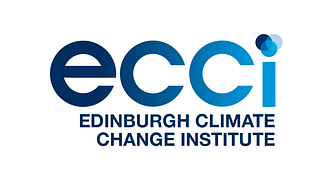Background
Despite significant investments made to-date in energy efficiency measures, renewables and low carbon technologies, more needs to be done to close the ‘performance gap’ between ambition and reality in public sector construction and the building management.
The University of Edinburgh, in collaboration with a number of industry partners*, successfully secured funding from the Scottish Funding Council to address this by targeting systemic challenges in the design and delivery of building projects pre-construction, and in building management post-occupation.
Managed by the Edinburgh Climate Change Institute (ECCI), the project has been built on the university’s existing expertise of low carbon solutions in the construction sector. The goal has been to bring together key players in construction, architecture academia, and design, to harness expert knowledge and experience and drive meaningful action.
The project was officially launched on 5 March 2020 by Mr Ivan McKee, Scotland’s Minister for Trade, Investment and Innovation.
The project’s ambition is to help create a step-change in emissions reductions from public sector construction and built environment up to 2045 by improving how building projects are designed, managed and implemented through early-stage decisions and better on-going management of building performance.
Report
The project team published its report exploring ways in which to reach zero and low carbon targets through innovation in construction in Scottish Higher and Further Education in August 2021.
Read the report
Read the executive summary
This publication comes in the week when the UN’s Intergovernmental Panel on Climate Change (IPCC) laid out its findings labelled as “code red for humanity” by UN secretary general António Guterres. This highlights the importance of Scotland’s Higher and Further Education sectors ensuring that their estates are energy efficient and are working in line to meet Scotland’s climate change goals.
The report examines where university and public sector clients must work more collaboratively with construction partners to ensure the delivery of zero-carbon buildings.
Project aims
-
Establish Effective Partnerships - establish a genuine and sustained partnership between industry, academia and policy to collaboratively deliver accelerated emission reductions from 2020 to 2045;
-
Identify High Value Continuous Improvement Opportunities - identify barriers to change and co-develop future-focussed, risk-based solutions to drive down emissions across construction lifecycle;
-
Create a living laboratory for Innovate Digital Tools – test emerging digital technologies with leading industry partners and demonstrate the value to all stakeholders of advanced data analysis, modelling and simulation.
-
Capacity Building for Effective Procurement- increase HE/FE capacity to meet design energy performance targets and maintain low-emissions throughout operational build lifetime by producing sector focused guidelines and specifications to enhance construction procurement;
-
Dissemination of Knowledge - deliver a programme of wider stakeholder communications and engagement to maximise opportunities for wider uptake of solutions developed during the project.
Early stages
Two well-attended workshops explored the opportunities and the challenges to embed zero and low carbon outcomes into key phases of a construction project both from the client perspective and from that of the contractor. Topics discussed included the importance of the business case, early and long-term engagement, budget and whole life costing, skills and knowledge and the role of value engineering.
The ‘living lab’ element of the project looked to demonstrate the business benefits of investing in advanced energy modelling and the adoption of enhanced levels of analytics at all stages of the building lifecycle. This aims to inform the transition to zero carbon and to provide benchmarks and processes that can be shared and adopted by higher and further education sector peers as well as other public sector organisations.
Contact
For further information on the project contact jenny.fausset@ed.ac.uk.
Industry Partners
*Industry Partners include Scottish Futures Trust, Zero Waste Scotland, EAUC (Alliance for Sustainability Leadership in Education), AUDE (Association of University Directors of Estates), APUC (Advanced Procurement for Universities and Colleges), CSIC (Construction Scotland Innovation Centre), Robertson Construction.

-1_(large).jpg)